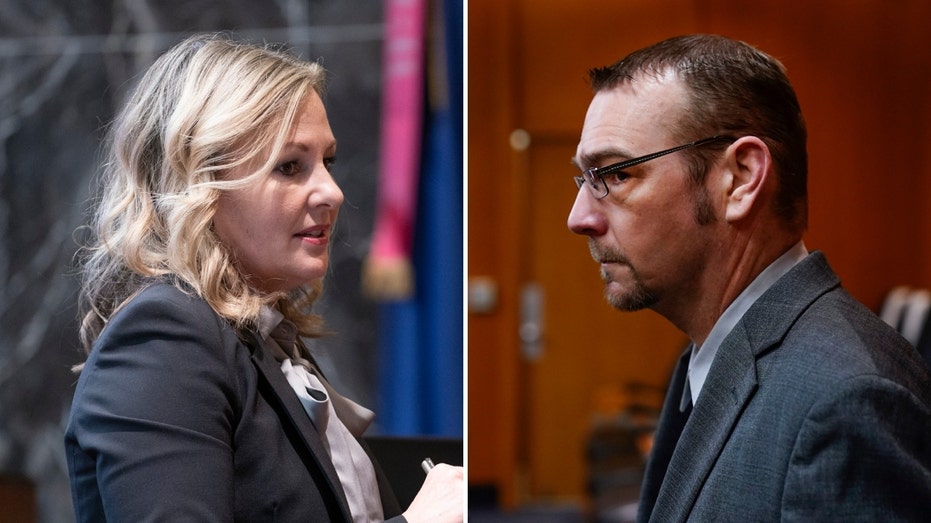“Not about banning.” Theologian unpacks Ukraine’s new anti-Russian church law
Ukraine's religious landscape faces a seismic shift with new legislation, but it's not the blanket ban many expect. A theological expert unpacks the law's true nature and potential outcomes.
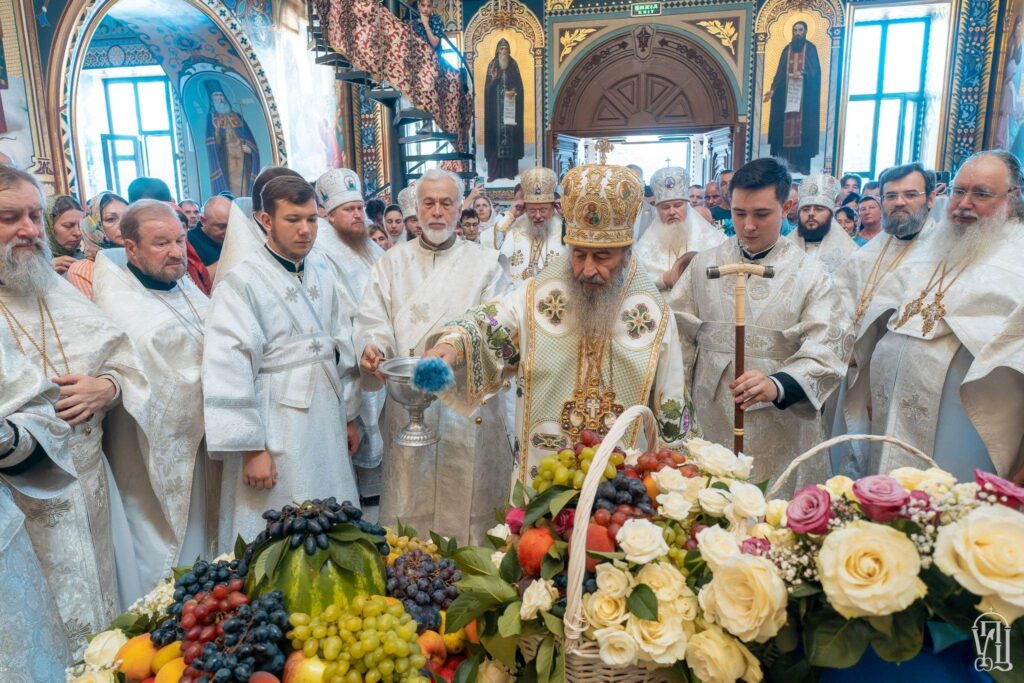

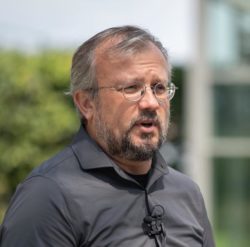
As Ukraine moves to ban Russian-affiliated religious organizations, adopting the relevant law on 20 August, all eyes are on the Ukrainian Orthodox Church of the Moscow Patriarchate (UOC MP).
This once-dominant church, which still boasts the largest number of parishes in Ukraine, finds itself between a rock and a hard place.
Having undertaken half-measures to sever its subordination to the Russian Orthodox Church after Russia’s full-blown invasion in 2022, it found itself under increasing state pressure. Its connection to the religious institution blessing Russia’s ongoing invasion of Ukraine became increasingly incomprehensible as Ukraine’s law enforcement cracked down on clerics accused of spreading “Russian world” ideology, the Kremlin’s driving force of war, and lawmakers made legislative inroads for prohibiting its activities.
However, its situation remains controversial. Having found itself under, at times, undue pressure to merge with the Orthodox Church of Ukraine, created in 2019 under the aegis of Ecumenical Patriarch Bartholomew, the UOC MP has unraveled a campaign among American conservatives, claiming it is a victim of religious persecution that has nothing to do with Russian aggression.
Theologian Cyril Hovorun helps unravel the dynamic Ukrainian religious situation and explains how the law is not about banning the UOC MP but helping it find a way out of an impasse of its own making, how Ukraine is reliving Europe’s Thirty-Years war, why the Ukrainian state is assuming the position of Leviathan, and how the Moscow-orientated church could be heading for a historical rapprochement with the Ecumenical Patriarch, although one borne out of necessity.
Watch the whole interview here:
EP: Thank you, Father Cyril, for speaking with us today. Let’s discuss Ukraine’s recent initiatives to ban the Ukrainian Orthodox Church of the Moscow Patriarchate. What are your thoughts on this law?
We need to be careful about the language we use to describe this law. It’s not primarily about the Ukrainian Orthodox Church, nor is it about banning it outright. It’s a law about banning the Russian Orthodox Church, and it specifies what kind of banning it implies.
In Ukraine’s legal framework, religious organizations can exist freely without registration. This differs from countries like China, where religious organizations must register with the state to function. In Ukraine, registration is optional, granting some extra privileges for an organization, such as using municipal or state property.
Essentially, this law is about limiting or prohibiting the administrative structures of the Russian Orthodox Church in Ukraine and organizations affiliated with these entities. The law offers specific criteria for what organizations are meant, though it doesn’t mention the Ukrainian Orthodox Church of the Moscow Patriarchate (UOC MP) even once. Instead, it explicitly mentions the Russian Orthodox Church. These are important clarifications before we start discussing this law.
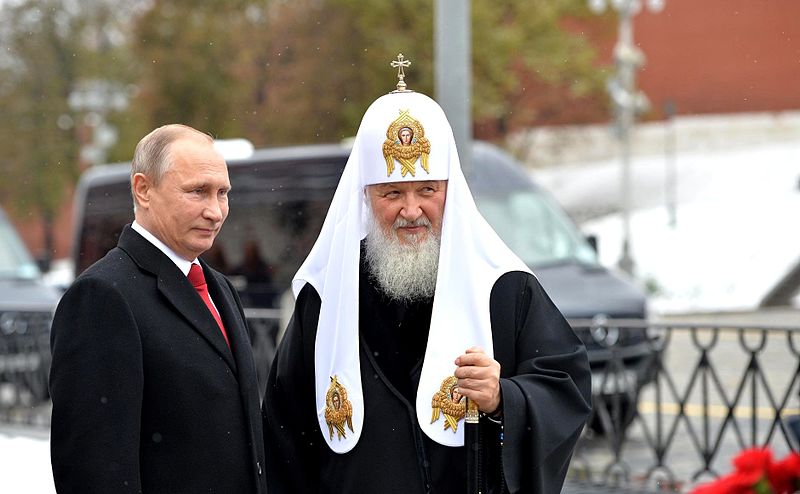
Personally, I believe there wasn’t much point in adopting this law because its practical implementation is extremely difficult. The law outlines a three-step process: First, a government agency identifies a potentially affiliated organization – a church community, not the entire church structure. Then, it informs the organization and other relevant state agencies. Finally, it presents its findings to a court for a final decision, which is the final institution to make a decision about the organization.
Practically speaking, it’s almost impossible to implement this law. It looks more like a declaration, though I don’t think it’s necessarily just that, given the attention it’s received, especially abroad.
Yet I believe it can help, even as a declaration. This law could really change the status quo in the religious landscape in Ukraine. Right now, there is an impasse between two antagonistic Orthodox churches in Ukraine — the UOC MP, believed to still be affiliated with Moscow, and the Orthodox Church of Ukraine (OCU), which is autocephalous and recognized by the Ecumenical Patriarchate.
There’s a standoff between these two churches. Each protects its own status quo, seemingly content with its current position. This law might force these churches to act and change the status quo, potentially creating new dynamics in interreligious relations and possibly bridging the gap between them.
The autocephalous church hopes this law will push the Moscow-affiliated Ukrainian Orthodox Church communities to join them, which is unlikely to happen on a large scale. Some communities might join, but certainly not all those the autocephalous church expected to be affected. We don’t know where these communities will ultimately align, but this law certainly pushes them to reconsider their status and take action, rather than just waiting for the war to end.
EP: Let’s talk about the status quo. When Russia’s full-scale invasion started in 2022, the UOC MP took some steps to distance itself from Moscow, but these steps seemed to be half-measures. Could you tell us more about how far the Moscow-affiliated church has distanced itself and why it’s not going further?
If we describe the dynamics in general, I would say there was a splash of activities in May 2022, following the full-scale invasion. This splash was caused by very active dynamics within the church. Many people demanded the church leadership do something, and the leadership responded, even though many hesitated. They were forced by the grassroots level of the church to act.
After that, they calmed down, deciding it was enough and preferring to sit and wait. So the dynamics of changes within the UOC MP fell.
Yes, they declared a kind of independence from the Russian Orthodox Church, but it wasn’t truly complete. They severed relations with the Russian church but didn’t cut them off entirely.
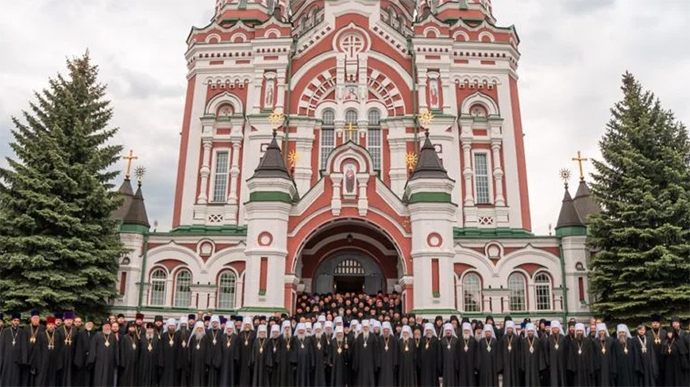
Now we see a new opportunity for the church to do something. It’s not an opportunity the leadership will willingly use, as it doesn’t want to change anything, being content with what it has. But changes may be stirred from within the grassroots level, from the communities and the priests.
I see very active discussions at the community level. Some bishops are involved, as bishops in the UOC MP are divided on the issue of Moscow. Some, including Metropolitan Onufriy, who is the primate of the church, are very happy with what they have already and don’t want changes. There are other bishops who believe the present status is wrong and that something needs to be done.
Essentially, I believe the law can be an opportunity by giving the latter the leverage to force their leadership to act. It’s up to the UOC MP to use this opportunity to help themselves; however, they could miss it by continuing to sit around and do nothing, harming themselves.
The legislators have given the church a nine-month gap – almost like the time needed for a child to be born – to take some drastic steps. We’ll see what happens.
EP: Given that Russia has invaded Ukraine and the Russian Orthodox Church supports this invasion, why is the UOC MP’s leadership content with not severing ties completely? What are they waiting for?
I think opinions and expectations within the UOC MP vary. Some bishops within its leadership wait for Russia to somehow win this war. They believe this will be a solution for the entire church, allowing them to prevail again. They think in terms of victory or loss, like a zero-sum game. It’s similar to how the OCU church leadership thinks; it also sees an opportunity to prevail and is using it.
In the Ukrainian Orthodox Church of the Moscow Patriarchate, or ex-Moscow Patriarchate – its status is very unclear – many believe they’ll be given a chance to prevail, and not just survive, if Putin wins. These silent expectations of Putin’s victory circulate within the church.
Quite a few in this church believe that a stalemate, a frozen conflict, or a truce on unfavorable conditions for Ukraine might eventually help their church. They think the church could be a negotiation point with Russia, with Ukraine having to concede something to Russia, and the church being left untouched by the Ukrainian government. That’s why they expect the war to reach some kind of pause.
These expectations impede any dynamics of change within the UOC MP. They don’t want to do anything; they just expect the war to somehow end. It’s needless to say that it’s ethically wrong, even a sin and a crime, to possibly help or expect your enemy, who wants your extinction, to prevail. Still, this mindset circulates within the church. I believe this new law may disappoint those who expect this outcome of the war.
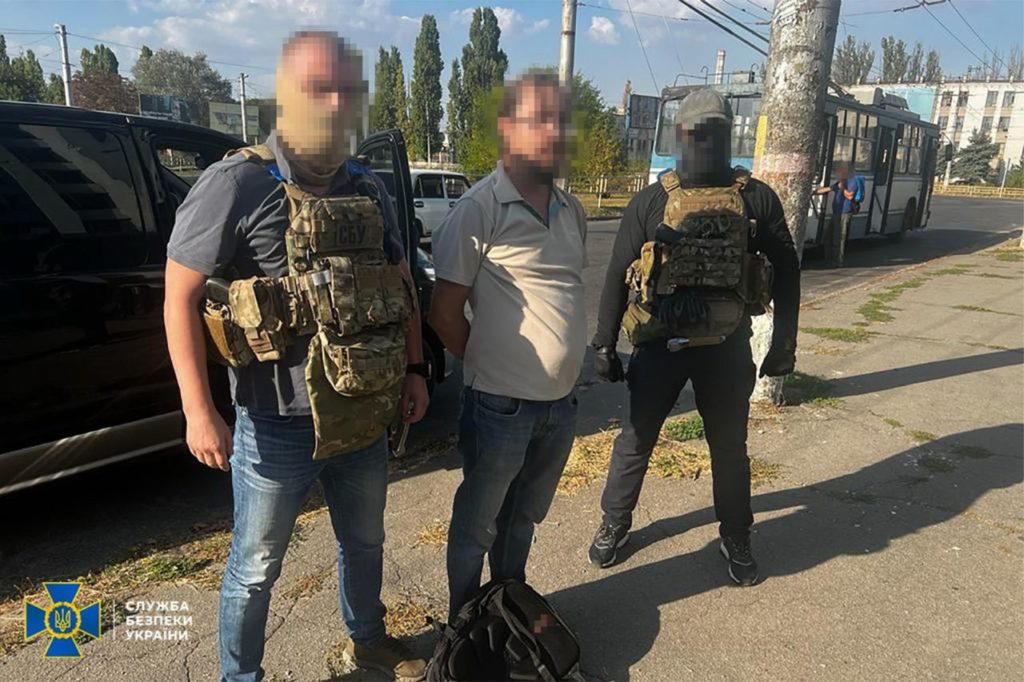
EP: Critics say the UOC MP split ties with Moscow in the early days of the invasion, most church members support Ukraine’s independence, and Ukraine’s state agencies are prosecuting hierarchs who participated in Russian aggression, necessitating no further action. They argue it’s redundant for Ukraine to take any action because this church is perfectly normal. How would you respond? How actively connected is this church to Moscow? Is it really helping Russian aggression?
That’s a very good question, and not easy to answer. Sometimes these churches are treated as a single, solid unit, as if it’s an organization of confederates who think the same way, share the same expectations and vision regarding Ukraine and Russia, and this vision is anti-Ukrainian. I think this perception of the church is wrong.
This church is huge and quite diverse, even if this diversity isn’t always visible. There are many opinions within it. Therefore, treating them as a whole is apparently wrong.
My impression is that the government understands this. I’m in touch with the government, and I see understanding in the Ukrainian political establishment that it’s wrong to side with only one church, the OCU, which wants the state to side with it and protect its interests in this saga of the law.
What I see prevailing in Ukraine’s political class is Hobbesian thinking of the state as Leviathan. This way of thinking emerged in Europe after the Thirty Years’ War, a religious war in which Protestants and Catholics tried to eliminate one another and engage the state on their side. Europe was decimated in the early 17th century, and after the Peace of Westphalia, it was decided that the state shouldn’t side with any religious group because this is damaging.
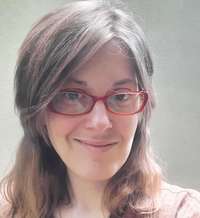
Hi! My name is Alya Shandra, I’m the author of this piece. I believe in the power of data and analysis, and that’s why we try to give you the best of it at Euromaidan Press.
Become our patron to help us bring you the best insights from Ukrainian and foreign analysts so we can cut through the noise together.
I think we’re now in a similar situation in Ukraine, almost like a Thirty Years’ war. The churches have been fighting each other and trying to engage the state. To some extent, it worked. During the period of President Yanukovych [deposed with the Euromaidan Revolution of 2014], the UOC MP managed to engage the state and force it to help them prevail.
Now, the OCU is trying to engage the state on its side, to help it win and eliminate its opponent. But the state is trying to play the role of Leviathan, a neutral force above the religious groups’ fight, more like a moderator.
On one hand, it may seem that with this new law, the state has sided with the OCU. At the same time, from my conversations with the state, I see a desire to help the OCU MP find a way not just to avoid extinction, but to get out of this deadlock it’s put itself in.
There seems to be a positive agenda. This was discussed, for example, during the recent visit to the Ecumenical Patriarchate by a Ukrainian state delegation, including the deputy head of the presidential office. They discussed the possibility of the Ecumenical Patriarchate’s involvement in moderating this inter-religious conflict in Ukraine.
We see two conflicting sides – the UOC MP and the OCU – fighting each other ferociously. And then we see the emergence of a force trying to moderate the conflict, to be above it. It’s just emerging, not really established yet. We observe a synergy between the Ecumenical Patriarchate and the Ukrainian state in trying to facilitate some kind of dialogue between the two churches.
On one hand, we see a stick – this law – and on the other hand, we can see a carrot offered to the church by the state and the Ecumenical Patriarchate.
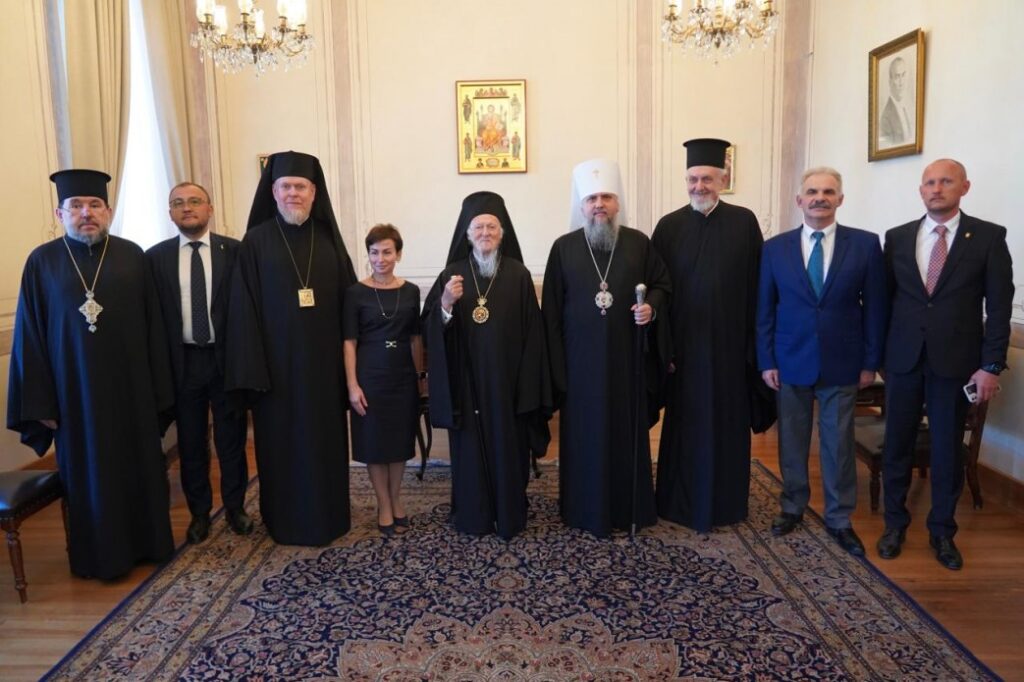
EP: You’re saying the state is trying to help the Moscow-affiliated church find a solution, but critics accuse the Ukrainian state of implementing a campaign against this church. They claim the state is taking away its temples, prosecuting its clerics unnecessarily, and siding with the autocephalous church. A campaign has unfolded in the United States where the UOC MP claims it’s suffering from religious persecution by the Ukrainian state. Could you comment on that?
I agree that the state sometimes gives opportunities to think this way. However, this perception of the Ukrainian state siding with the autocephalous church and interfering in the church’s internal matters is a bit superficial.
The reality is more complex. I see the state emerging as a new Leviathan in the Hobbesian sense, as a moderating power above the conflicting religious organizations, groups, and churches. It’s trying not just to punish the UOC MP, but to propose viable solutions that would preserve most sensitivities of this church. I think this is an important aspect of this otherwise very complex puzzle.
It’s also worth noting that both Ukrainian churches – the OCU and UOC MP – don’t really want this kind of moderation or mediation from the state and the Ecumenical Patriarchate. We’ve seen how the OCU has rebuked the Ecumenical Patriarchate’s attempts to interfere, though not successfully.
EP: What were those attempts to interfere by the Ecumenical Patriarchate?
For example, they tried to send a delegation to investigate what’s happening here on the ground, to get a more objective outlook on the situation in Ukraine, as their official channel of information was very biased.
There was already one delegation recently in July, and there will be another one next week. Their purpose is to investigate what’s happening and to facilitate rapprochement between the two Orthodox churches. I think this is happening with the full consent and endorsement of the state, though not necessarily of the two churches.
It’s even more nuanced – Metropolitan Onufriy of the UOC MP reached out and agreed to some kind of mediation from the Ecumenical Patriarchate to solve this impasse in Ukraine. So it’s a very dynamic situation with many moving pieces.
This new legislation, I believe, is imperfect and has its limitations. But it is now law and we should figure out how to use it in a useful, not harmful, way. I believe it can stir and enforce dynamics of change within the UOC MP, including its rapprochement with the Ecumenical Patriarchate [with which it severed relations after it granted autocephaly, or independence, to the Orthodox Church of Ukraine in 2019], and eventually with the OCU.
EP: Let’s talk about the OCU. We’re seeing some grassroots efforts to foster dialogue between the churches, but not on an official level. They’re maintaining a very confrontational position. Why can we observe this situation in Ukraine where the two largest churches are basically fighting each other? What prevents their dialogue and rapprochement?
I believe they feel threatened by the prospect of dialogue or real rapprochement between themselves. They fear it will challenge their standing, they would have to share authority and property, and they’re not prepared to do this. In my opinion, they’re acting quite selfishly, valuing their corporate interests more than the common good of Ukrainian society at large.
This selfishness and egoism of both jurisdictions is the real reason for the impasse between the two churches.
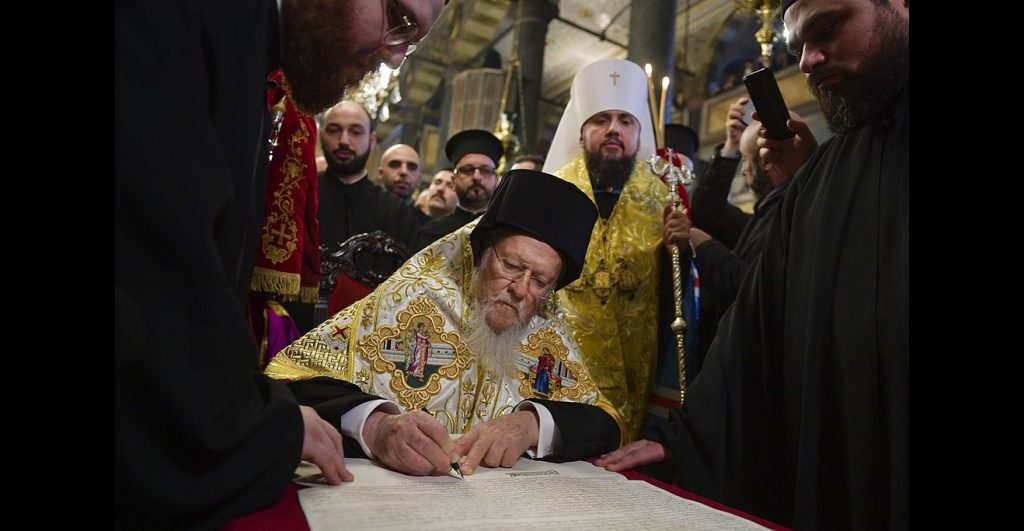
It’s really a problem for the integrity of Ukrainian society. We need unity, and this unity is being constantly challenged by the churches. That’s why interference from outside is needed, and I think this interference is happening with major actors like the Ecumenical Patriarchate [considered to be in the exceptional situation of “first among equals” among Orthodox Churches and therefore well-positioned to engage in their problem-solving] and the Ukrainian state.
I see more resistance from the OCU to any meaningful attempt by the Ecumenical Patriarchate to intervene in the situation. Meanwhile, the UOC MP is making more desperate gestures to reach out to the Ecumenical Patriarchate, as they’re in such a difficult position that they have to reach out somewhere.
We’ll see where this ends up, as it’s only the beginning. Maybe they’ll be spooked and forced to stop this rapprochement. Also, Moscow isn’t interested in this and will impede relations between the OCU MP and the Ecumenical Patriarchate. The ultimate beneficiary of this rift between the two Ukrainian Orthodox Churchs is Moscow.
EP: You mentioned that the Moscow-affiliated church finds itself in a desperate situation. Could you please explain what is so desperate? Why is it so difficult to cut ties with Moscow, and what could the steps forward be for this church?
It’s an impasse of its own making. The UOC MP can only blame itself for ending up in this deadlock after a sequence of choices made by its leadership. But it doesn’t mean they have to be left alone. They need help, and I believe those in the Ukrainian state who are trying to help the church are acting generously and with healthy motivation.
This impasse has many sides, including the legal side, and the law we’re discussing today has somewhat aggravated the legal situation for this church, or rather for its current status. At the same time, it forces the church to look for other statuses for itself.
Canonically speaking, the status of the church is unclear.
It doesn’t fit any established status within global Orthodoxy. It’s not autocephalous, it’s not autonomous, it’s not completely dependent on Moscow. The church itself can’t explain what it is. If you ask Metropolitan Onufriy what the status of this church is, he’d be unable to give a meaningful explanation.
This limbo, this grey zone where the church finds itself, it went there on its own, maybe with Moscow’s help, but not anyone else’s.
As for the way out, I think it’s starting to happen. They’re reaching out to the Ecumenical Patriarchate, establishing communion with global Orthodoxy, leaving the isolation where the church trapped itself with Moscow’s help. They need to start talking and taking communion together with the rest of the Orthodox churches, to establish communion with the autocephalous church, to start meaningful dialogue. These would be the first steps. Dialogue and rapprochement are unavoidable first steps.
Then, through this dialogue, they could discuss how to coexist with one another. The forms of coexistence can be different, but to discuss them, they first need to start talking to each other.
EP: Why is it so difficult for the UOC MP to simply break with the Moscow Patriarchate? What’s the problem, canonically speaking? Why is it so important for them to be in communion with Moscow? How does subordination work in the Orthodox world?
Again, it varies because different groups have different motivations to preserve this unity with Moscow. Some in the UOC MP still believe in the political “Russian World” ideology proclaimed by Patriarch Kirill. They don’t demonstrate it or speak up, but keep this belief to themselves.
Then there are people, and I think this applies to Metropolitan Onufriy, who believe that church unity is more important than any political circumstances, even war. Even if people are being killed in the war, it still doesn’t matter because they believe the church is above everything. Many religious people, many Christians, would understand this. However, the circumstances are so exceptional – it’s a war, an existential threat where even Metropolitan Onufriy could easily be killed.
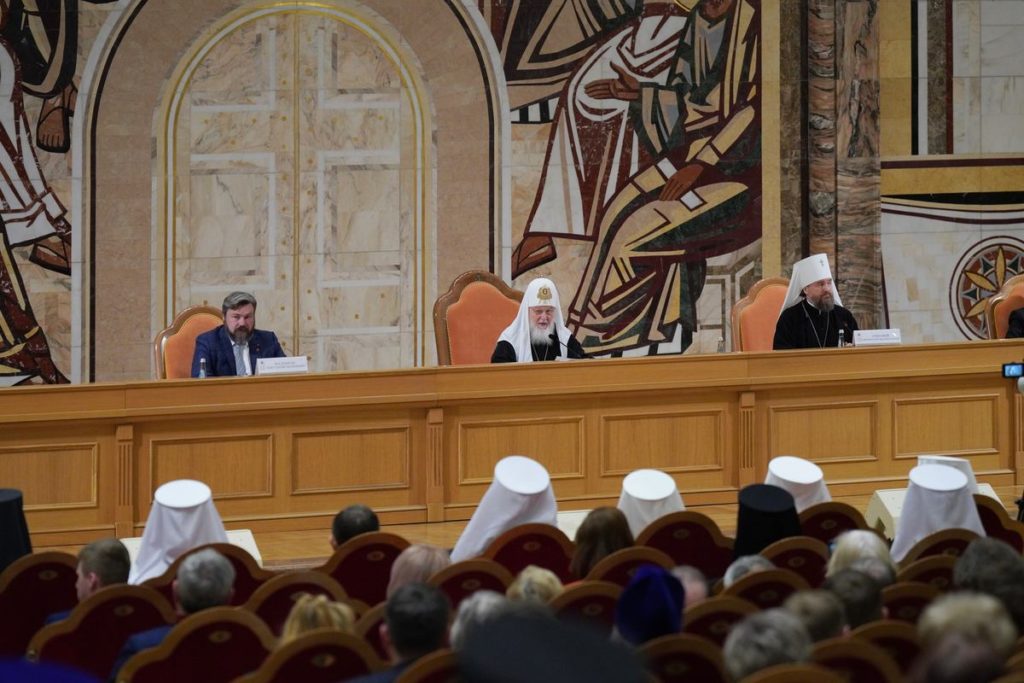
Given these circumstances, you can’t believe anymore that unity with the Moscow Patriarchate is more valuable than anything else. Especially given that breaking jurisdictional relations with the Moscow Patriarchate doesn’t mean breaking relations with the Church of Christ. That’s another confusion these people have. They believe that having a relationship with the Moscow Patriarchate is like having relations with Christ himself. This is wrong from the perspective of our own theology because we believe that everyone is in Christ, regardless of their jurisdictional relationships. For example, the Bulgarian or Romanian churches are completely autocephalous, independent from other churches, and still constitute one single Church of Christ.
People who cling to unity with Moscow at any price confuse jurisdictional unity with the Moscow Patriarchate with unity with Christ himself. It’s a grave theological mistake.
Then there’s the majority of people who just have inertia. They don’t want to change anything. In religion, in Christianity, inertia is always very strong. We have this feeling of tradition, of continuous tradition that needs to go on without disruptions. They believe if they change something, it will be a major disruption to tradition, and they don’t want that. It’s also a wrong theological perception, and it’s also a kind of laziness, an inertia which can be helped by the law we’re discussing.
EP: How could the UOC-MP become autocephalous, like the Bulgarian Church or the Serbian Church that you mentioned?
A: Well, there’s already an autocephalous church in Ukraine – the OCU – and there can’t be a second autocephalous church. That’s why they need to find a way to use the Tomos of autocephaly, which was granted by the Ecumenical Patriarchate in early 2019, to normalize their canonical status.
I don’t have a ready recommendation for what status they should adopt because it’s their decision, their church. But they certainly need to do something. Even under the circumstances of war, they’re still enjoying their comfort zone. They need to leave it, that’s for sure. And then they’ll find out what the solution will be. But they need to leave their comfort zone first.”
Related:
- Orthodox Church of Ukraine activists implore leaders to condemn violence during parish transfers
- Theologian: Russian Church goes full Nazi with “holy war” on Ukraine
- Anatomy of treason: how the Ukrainian Orthodox Church sold its soul to the “Russian world”
- Russian World: the heresy driving Putin’s war
- Obey to pray: Russia’s ruthless crackdown on faith in occupied Ukraine

